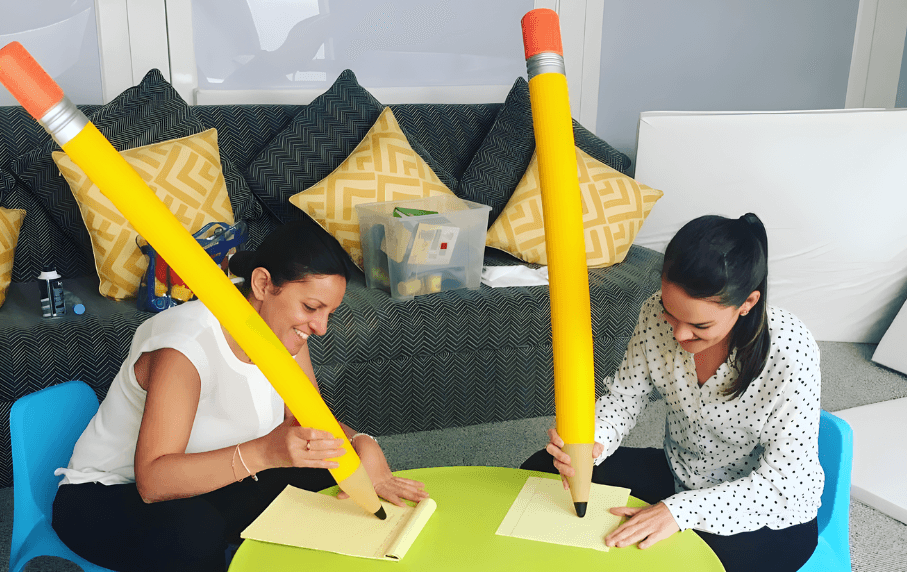
Human beings have long been curious about how the brain works, wondering about the structure and function of this most remarkable part of our bodies. Ongoing research has only recently revealed many secrets of the brain, with many more to be learned, of course. For parents of special needs children, this research has offered wonderful insight into how we can use speech and language therapy to improve communication and behavioural challenges.
 You may have heard the brain referred to as being “plastic”. Of course, we all know that is not what the brain is made of but, brain plasticity, or Neuroplasticity, refers to the brain’s ability to CHANGE throughout life. You see, the human brain has the amazing ability to reorganize itself by forming new connections between brain cells; a process in which your brain’s neural synapses and pathways are rearranged as an effect of environmental, behavioral, and neural changes.
You may have heard the brain referred to as being “plastic”. Of course, we all know that is not what the brain is made of but, brain plasticity, or Neuroplasticity, refers to the brain’s ability to CHANGE throughout life. You see, the human brain has the amazing ability to reorganize itself by forming new connections between brain cells; a process in which your brain’s neural synapses and pathways are rearranged as an effect of environmental, behavioral, and neural changes.
This means the human brain can be retrained, over time, to work in new and beneficial ways. In fact, the brain’s ability to reorganize itself by forming new neural connections throughout life is the very reason that speech and language therapy is so effective in improving communication problems.
Neuroplasticity allows the neurons (nerve cells) in the brain to compensate for injury and disease and to adjust their activities in response to new situations or to changes in their environment.
While many parents or guardians of children with delayed speech or other special needs may think “That’s just the way it is” when considering the challenges their child faces, there are ways to meet those challenges.
First, consider that even so-called “normal” children receive training and teaching throughout their lives: from school to sports coaching to training in the arts, children benefit from the training of others all through their lives. It is the incredible ability of the brain to change itself over time that enables this type of training and teaching.
Without the plastic nature of your own brain, you would never have learned to read or do your multiplication tables… or even simple addition and subtraction.
The same principles apply when a speech and language therapist works with your special needs child. The therapist will employ a variety of tools and techniques to help your child “retrain” their brain to form words, understand words, attend and, eventually, to put those words together into sentences to communicate thoughts and ideas.
If you imagine you are on the underground or the subway and need to get to your destination, but the line you use is not working, you can still reach your destination by using an alternative route.
It may take longer but, once you get used to this new route, you will be able to adapt. Therapy with young children can appear like play, and it should be fun. With older children, everyday social situations can be used to support communication as well as academic content.
In studies of cognitive and speech language development of children with disabilities in comparison with typically developing children, it was demonstrated that children with language disabilities also experience difficulties with emotional intonational utterances formulation. These may include difficulties in the development of thinking, memory, perception, and development of oral speech while assimilating such concepts as actions, properties, and attributes of objects.
However, the research has also shown that such children can be helped greatly through systematic, purposeful corrective work on the development of all mental functions, that and speech therapy enriches the sensory experience and practical activities of disabled children significantly.
In other words, speech and language therapy can be used to improve all areas of your child’s life: from communication difficulties, difficulties with organisation of ideas, to behavioural issues and learning in general.
If you are concerned that your child may be dealing with delayed speech development, speak to your family’s GP, or arrange an appointment with a Speech and Language Therapist.
You may also find the answers you’re looking for in my book, Let’s Talk, available on Amazon.